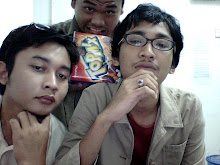A music video game, also commonly known as a music game, is a video game where the gameplay is meaningfully and often almost entirely oriented around the player's interactions with a musical score or individual songs. Music video games may take a variety of forms and are often grouped with puzzle games [1][2][3][4][5][6] due to their common use of "rhythmically generated puzzles"[7][8].
Strong support for the convergence of live music and video games is evident with the success of the Video Games Live concert series[9]. Emergent games for live concert performance, "game-scores," augment traditional western music notation with the dramatic elements of animation, interactivity, graphic elements and aleatoric principals (Anigraphical Music). The concept of incorporating Game Theory and music is not new and can be traced back to Musikalisches Würfelspiel[10].
Music video games are distinct from purely audio games (e.g. the 1997 Dreamcast release Real Sound: Kaze no Regret) in that they feature a visual feedback, to lead the player through the game's soundtrack, although eidetic music games can fall under both categories. As well, music video games are distinct from games about music videos (e.g. the 1992 Sega Mega-CD series Make My Video) in that music video games emphasize music whereas games about music videos often emphasize the video portion. Crossover titles such as Spice World may be about music videos but also contain musical elements to allow the music video game label





